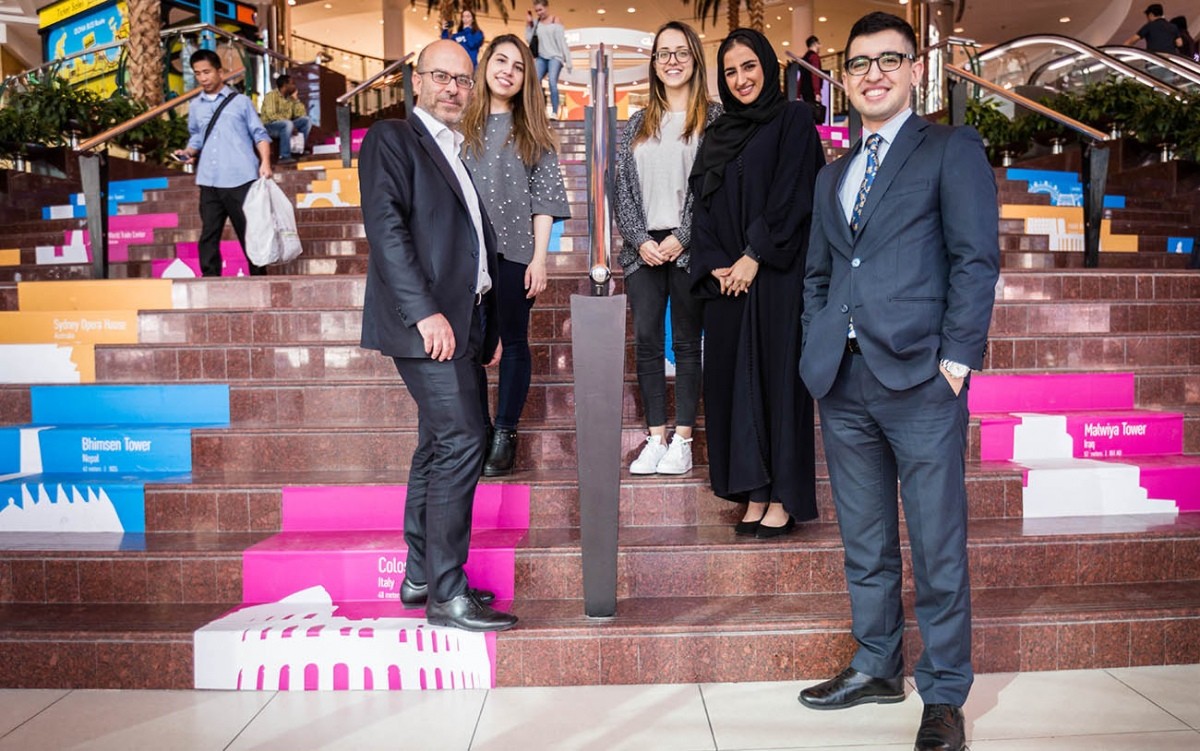.jpg)
_1-itok=GFMKQ6A9.jpg)
The Supreme Committee for Delivery & Legacy (SC) – the body responsible for delivering the infrastructure required for the 2022 FIFA World Cup™ – has partnered with the College of Law & Public Policy at Hamad Bin Khalifa University (HBKU) to design and deliver an innovative new programme focussed on law and behavioural economics.
Developed by the SC's Qatar Behavioural Insights Unit (QBIU), the programme is currently being offered to final-year students on HBKU's Juris Doctor course.
It will provide students with a foundational understanding of behavioral science and demonstrate how nudge theories can be practically applied to Qatar's historic hosting of the 2022 FIFA World Cup™, along with the endeavours of Qatar National Vision 2030.
Field experiments carried out during the programme will be supported by QBIU members, who are coaching students to help them with the design, implementation and analysis of their projects. Currently, 14 HBKU students are enrolled on the course and being taught by Dr Fadi Makki, QBIU founder, and Professor Georgis Dimitropoulos, from HBKU's College of Law & Public Policy.
H.E. Hassan Al Thawadi, SC Secretary General, said he was happy to see HBKU endorse the concept of behavioural economics in the run-up to the 2022 FIFA World Cup™.
"This is a legacy initiative that will benefit HBKU students today and long after the last ball has been kicked in 2022," said Al Thawadi.
"By training them and giving them exposure to leading figures in the theory of behavioural sciences, real-life policy challenges and access to insights and tools, we are offering students something that no other university in the region can.
"The SC will also benefit from the programme as the bright young students who take the class will apply their tests and theories to the challenges we face on a daily basis and the challenges we expect to face when the tournament begins in less than five years' time."
Professor Clinton Francis, Founding Dean of HBKU's College of Law and Public Policy, said: "Law and behavioural public policy development in Qatar is readily harnessing the power of behavioural economics to address some of the most important challenges confronting the country and region.
"Working at the juncture of law and public policy, the course focuses on the development of cutting-edge theory, and will enable students to explore new and exciting behavioural theories to see how they can be directly applied to Qatar and the 2022 FIFA World Cup."
Since its formation in 2016, QBIU has successfully implemented a range of experiments related to subjects such as workers' welfare, legacy programme participation and healthy eating.
Click here for further information about QBIU.

